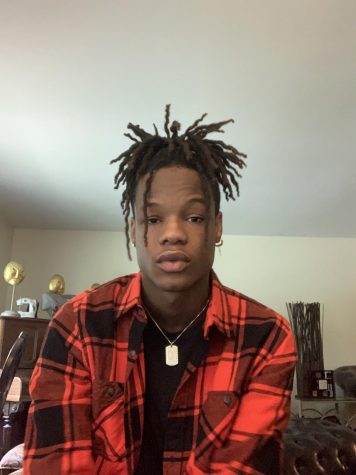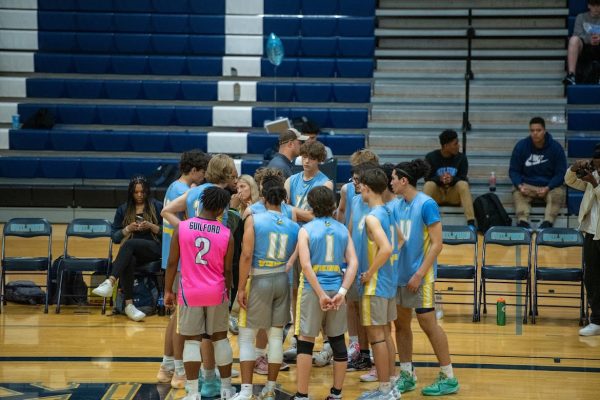Performative Activism hurts the cause it attempts to support
America has been in a turbulence lately, and many people and groups have taken to social media to voice opposition to injustice.
The Black Lives Matter movement sparked after the recent murders of George Floyd and Breonna Taylor. The LGBTQAI+ community is fighting for rights within this country. Many are upset about the recent Muslim concentration camps in China.
The time to speak up is now, but where do we draw the line between showing awareness & trying to fit in for social approval?
“Performative activism” is defined as “activism that is done to increase one’s social capital rather than because of one’s devotion to a cause.” This relates to a similar trend, “virtue signaling,” (the practice of publicly expressing opinions or sentiments intended to demonstrate one’s good character). Sad to say this “activism” has become far too common.
One of the most popular and infamous examples of performative activism was #BlackOutTuesday, a social media movement that occurred June 2nd. Over 20 million social media users participated in the act. Users posted black squares to their social media accounts in an effort to show awareness for the injustices Black people have faced in this country for too long.
The trend originated with Music executives Jamila Thomas and Brianna Agyemang. It was a move to show solidarity and make the world pause to see what exactly is happening. Somewhere along the line, though, the methods of reaching this goal got twisted and spiraled into not posting for the entire day then somehow posting black squares.
The black squares had little effect on actually advancing the movement with barely any users using it to educate their followers on ways to contribute to the cause. If you scrolled down your feed you would see plenty of these squares, but rarely would you see people inform you about more ways to help and make a difference. If in twenty years the biggest thing you can say you did for the BLM movement was have “#ACAB #DefundThePolice” and a black stock Google image on your social media, your impact leaves much to be desired.
Another example of performative activism is the case of large corporations using the “trend” as a way to promote their brands and companies. On social media, too many companies are outspoken on the matter but quiet when their questionable track record regarding Black employees comes to light.
The NFL was a major example of this. With the addition of “End Racism” on the back of players’ helmets, people were quick to call them out over the initial treatment of Colin Kaepernick, former Quarterback for the San Francisco 49ers, who came under intense media scrutiny in 2016 for kneeling during the National Anthem.
What people are asking for is not for these companies to be “keyboard warriors” online, but to actually open their wallets and put their money where their mouth is and contribute funding. A few corporations, including Gatorade, DoorDash and Airbnb, did provide funding to groups such as the Black Lives Matter Foundation and the NAACP.
The fact of the matter is, we don’t need large companies to be radical supporters just for the social praise they desire. Pop-Tarts doesn’t need a Black Lives Matter ad. It isn’t necessary and comes off as ingenuine in the process.
https://twitter.com/PopTartsUS/status/1267856818732175366
A major factor that contributes to performative activism and virtue signaling is when impassioned activists pressure other people to speak out. If those people choose not to do so, the activists label them as racist, homophobic, etc. Silence is NOT complicity. Forcing people to speak up for causes and hounding them for it not does little to no good. It takes away from the authenticity because people who have no passion for an issue, or quite frankly don’t care about it, are thrown into the crossfire for something over which they have little regard.
So how can you truly help these movements? First off is implementing these ideals and morals into your daily life: speaking up when you see racism, homophobia, bullying, etc. When people know they are likely going to be called out for their actions, the chances of them doing it will dwindle. Having tough conversations with peers also goes a long way. Educating each other through dialogue brings a clearer understanding of opposing viewpoints and reasoning. Attending local rallies, donating, and signing petitions are also a great way to be involved. Below are some great petitions and funds to donate to:
https://outrightinternational.org/?form=donate
https://pflag.salsalabs.org/supportpflag/index.html
htts://www.givemn.org/donate/Tcpride
https://www.raceforward.org/donate/thenewraceforward
https://www.change.org/p/andy-beshear-justice-for-breonna-taylor?source_location=petitions_browse
https://www.afsc.org/
https://www.change.org/p/united-nations-petition-to-free-to-muslims-in-chinese-concentration-camps
Blacklivesmatter.com

Nasir Mubarak (‘21) is a journalist that strives his writing on accuracy, relevancy, and cultural significance. His main passions are politics and fashion...












